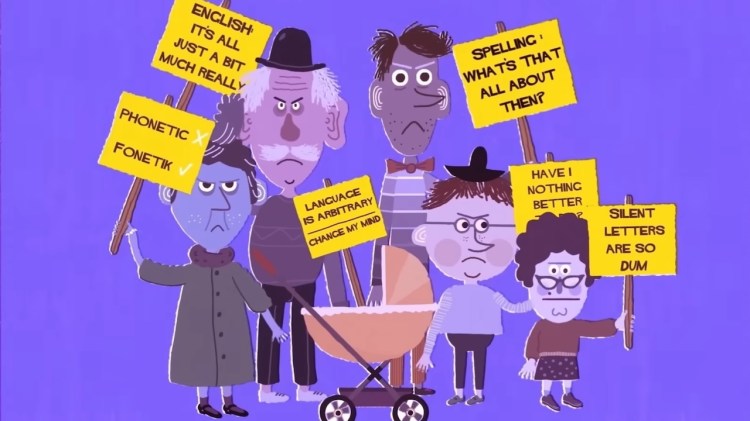The Seemingly Random Inconsistency of English Language Spelling
In an explanatory TED-Ed lesson written by linguist Arika Okrent and animated by Aaron Brady and Emily Howells, narrator Jack Cutmore-Scott explains the complicated nature of the English language, its multi-cultural origins, its difficult learnability, and the seemingly random inconsistency with spelling.
Spelling reformers have been advocating for changes to make English spelling more intuitive and less irregular. …So, how did English get like this? Arika Okrent explores the complexity of English spelling conventions.
The essay specifically addresses the varied pronunciation of words ending in O-U-G-H.
The word “tough” was once “t?h,” among other variations. “Through” was once “thruch” and “dough” “dah.” These words all started with different vowel sounds that were then affected differently by the vowel shift. The “o-u” spelling they all adopted was a haphazardly applied French influence. So, eventually they wound up with still distinct vowel sounds, but similar spellings that don’t really make much sense.

An amusing scene from the classic television series I Love Lucy also addressed this particular concern.






